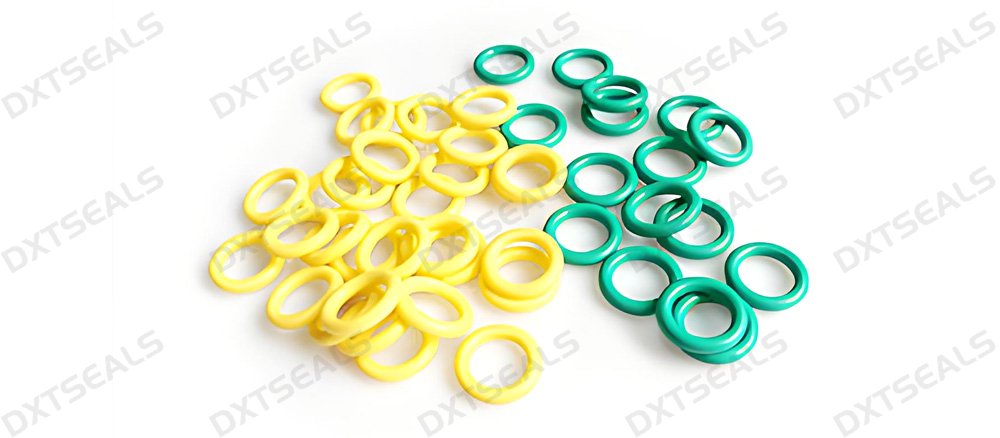Introduction
In the automotive industry, sealing solutions play a pivotal role in ensuring the efficiency, safety, and reliability of vehicles. Among the various sealing materials, rubber gaskets are particularly important due to their flexibility, durability, and resistance to various environmental factors. From engine components to fuel systems, rubber gaskets are found in a wide range of applications, providing tight seals that prevent leaks and enhance the performance of automotive systems. In this article, we’ll explore the key applications of rubber gaskets in the automotive industry and the features that make them indispensable for modern vehicles.
1. What Are Rubber Gaskets and Why Are They Important in Automotive Systems?
Rubber gaskets are flexible, compressible seals used to create a leak-proof barrier between two mating surfaces. Made from various types of rubber compounds such as NBR (Nitrile Butadiene Rubber), EPDM (Ethylene Propylene Diene Monomer), and FKM (Fluorocarbon), these gaskets offer excellent chemical resistance, temperature tolerance, and compression set resistance.
In the automotive industry, rubber gaskets are used to prevent fluid leakage, ensure pressure containment, and improve system efficiency. These seals are critical in preventing engine oil leaks, coolant leakage, and exhaust gas emissions, making them an essential component in vehicle performance and safety.
2. Key Applications of Rubber Gaskets in the Automotive Industry
2.1 Engine Components
Rubber gaskets are widely used in engine assemblies to seal various components, including the valve covers, timing covers, and oil pans. Their ability to withstand high temperatures and pressure variations makes them ideal for preventing oil leaks and ensuring the integrity of the engine.
- Valve Cover Gaskets: Prevent oil leakage and contamination in the engine.
- Oil Pan Gaskets: Provide a tight seal to prevent engine oil leaks and ensure smooth engine operation.
- Timing Cover Gaskets: Seal the timing components and prevent oil leakage.
2.2 Fuel Systems
In fuel systems, rubber gaskets are used to seal parts such as fuel injectors, fuel tanks, and fuel pumps. Their excellent chemical resistance ensures they can handle fuel exposure without degradation, helping to prevent fuel leaks that could lead to fires or hazardous situations.
- Fuel Tank Gaskets: Ensure no fuel leakage from the fuel tank system.
- Fuel Injector Seals: Prevent leaks around the fuel injector and improve combustion efficiency.
- Fuel Pump Seals: Help maintain a leak-free environment within the fuel pump system.
2.3 Exhaust Systems
In exhaust systems, rubber gaskets are used to seal the exhaust manifold, catalytic converters, and mufflers. These gaskets help prevent exhaust gas leaks, ensuring emission control and optimal engine performance while keeping harmful gases from entering the cabin.
- Exhaust Manifold Gaskets: Prevent exhaust gas leakage from the manifold to the engine.
- Catalytic Converter Gaskets: Seal the exhaust system to ensure proper catalytic converter operation.
- Muffler Gaskets: Prevent leakage of exhaust gases and reduce noise levels.
2.4 Transmission and Differential Systems
Rubber gaskets also seal critical components within the transmission and differential systems. These seals help to prevent fluid leaks, such as transmission fluid and differential oil, which are essential for maintaining proper lubrication and preventing damage to moving parts.
- Transmission Pan Gaskets: Prevent transmission fluid leakage.
- Differential Gaskets: Ensure the differential remains sealed and lubricated to prevent friction and wear.
2.5 HVAC and Climate Control Systems
In vehicle HVAC (heating, ventilation, and air conditioning) systems, rubber gaskets are used to create a sealed environment around air ducts, blowers, and condensers. These gaskets ensure that air flows efficiently, while also preventing moisture or coolant leaks that could damage components.
3. Features and Benefits of Rubber Gaskets in Automotive Applications
✅ Temperature Resistance
Rubber gaskets can withstand the high temperatures generated by engine components, exhaust systems, and other critical automotive parts. Materials like EPDM and FKM are particularly known for their high-temperature stability, ensuring long-lasting performance in extreme conditions.
✅ Chemical Resistance
Automotive systems expose rubber gaskets to a variety of chemicals, including oil, coolant, fuel, and exhaust gases. Gaskets made from materials like NBR are highly resistant to oils, while FKM gaskets offer superior resistance to fuels and harsh chemicals, providing reliable seals in challenging environments.
✅ Compression Set Resistance
Rubber gaskets are designed to maintain their shape and sealing ability even after extended compression. Their compression set resistance ensures that the gasket does not lose its sealing function over time, which is essential for maintaining system integrity.
✅ Flexibility and Ease of Installation
Rubber gaskets are highly flexible, allowing them to form a tight seal even on surfaces that may not be perfectly flat. This flexibility also makes them easier to install compared to rigid sealing materials like metal gaskets.
✅ Vibration and Noise Dampening
In automotive systems, vibrations from the engine or road conditions can cause wear and lead to leaks. Rubber gaskets are excellent at absorbing vibrations and reducing noise, helping to improve the overall comfort and functionality of the vehicle.
4. Conclusion
Rubber gaskets are a cornerstone of the automotive industry, providing essential sealing solutions that enhance vehicle performance and safety. From engine components to fuel systems and exhaust systems, rubber gaskets help prevent fluid leaks, ensure emission control, and improve overall vehicle efficiency. The key benefits of rubber gaskets—such as temperature resistance, chemical resistance, and compression set resistance—make them the ideal choice for a wide variety of automotive applications.
By selecting the right type of rubber gasket for each application, automotive manufacturers can ensure the reliability, longevity, and safety of their vehicles, ultimately leading to improved customer satisfaction and reduced maintenance costs.

